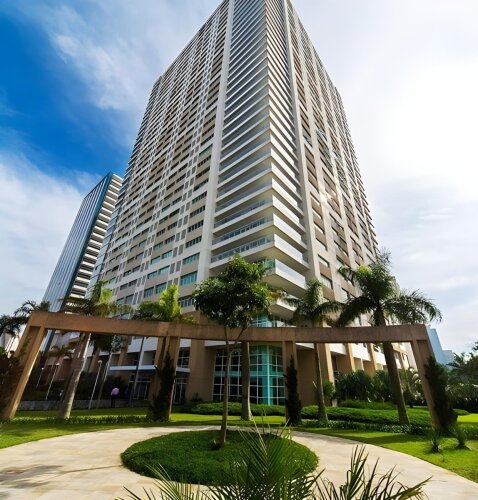Best Child Support Lawyers in São Bernardo do Campo
Share your needs with us, get contacted by law firms.
Free. Takes 2 min.
Free Guide to Hiring a Family Lawyer
List of the best lawyers in São Bernardo do Campo, Brazil

About Child Support Law in São Bernardo do Campo, Brazil
Child support, known as "pensão alimentícia" in Brazil, is a legal obligation aimed at ensuring children receive the necessary financial resources for their upbringing. In São Bernardo do Campo, a city within the state of São Paulo, child support laws adhere to federal legislation, primarily governed by the Brazilian Civil Code and the Statute of the Child and Adolescent (Estatuto da Criança e do Adolescente - ECA). Courts require that parents provide adequate maintenance, covering basic needs such as food, health, education, housing, and other essentials for the well-being of their children.
Why You May Need a Lawyer
There are several situations where seeking legal help for child support in São Bernardo do Campo is highly recommended. If you are experiencing difficulties in reaching an agreement over the amount or modalities of payment, or if the other parent is failing to meet their obligations, professional guidance ensures your rights and your children's needs are protected. Lawyers play a critical role in negotiating, drafting, and enforcing support agreements. They also assist with modifying court orders when circumstances change, represent you in legal proceedings, and guide you through complex situations such as international support claims or cases involving hidden income.
Local Laws Overview
São Bernardo do Campo follows federal guidelines for child support, but local family courts have their own procedures and may offer specific services to streamline the process. The amount of child support is determined by the principle of proportionality, balancing the financial capabilities of the provider with the needs of the child. There is no fixed percentage, but in practice, courts often use parameters ranging from 20 to 30 percent of the provider’s net income for one child. Payment is generally made monthly, and both parents can be obliged to contribute according to their means. Failure to pay can result in enforcement actions, which may include wage garnishment or even imprisonment for up to three months.
Frequently Asked Questions
What is child support ("pensão alimentícia")?
Child support is a legal obligation requiring a parent to provide financial assistance to their child to cover essential needs such as food, healthcare, education, and housing.
How is the child support amount calculated?
The amount is typically based on the needs of the child and the financial capacity of the parent responsible for payment. The judge evaluates both factors and decides on a fair amount, usually as a percentage of net income.
At what age does child support end?
Child support typically ends when the child turns 18, or up to 24 if the child is still studying in higher education and depends financially on the parent.
What can I do if the other parent stops paying child support?
You can file a legal action for enforcement in the Family Court of São Bernardo do Campo. The court can order wage garnishment, seizure of assets, or even detention of the debtor.
Can the child support amount be changed?
Yes, the amount can be revised if there is a significant change in the financial situation of either parent or the needs of the child. A court petition is necessary for adjustments.
Is child support only for biological children?
No, it can also apply to adopted children and, in some cases, to stepchildren or others who are proven to be dependents.
Can child support be paid directly to the child?
For minors, support is usually paid to the parent or legal guardian responsible for the child. Direct payments to children are not standard until they reach adulthood.
Do both parents have to pay child support?
Both parents are responsible, but the non-custodial parent usually makes payments while the custodial parent provides everyday expenses. If both parents share custody, contributions can be balanced accordingly.
What documents do I need to request child support?
Common documents include the child's birth certificate, proof of income of both parents, proof of expenses related to the child, and identification documents of all parties involved.
How long does it take to resolve a child support case?
The duration depends on the complexity of the case and court schedules, but emergency support ("alimentos provisórios") can be granted quickly while the process is underway.
Additional Resources
- Family Court of São Bernardo do Campo (Vara da Família): Handles all legal procedures for child support. - Defensoria Pública do Estado de São Paulo: Offers free legal assistance to individuals who cannot afford a private lawyer. - Conselho Tutelar: Protects children's rights and can advise on how to claim support. - Ministério Público do Estado de São Paulo: Monitors compliance with child support orders and defends the interests of minors.
Next Steps
If you need legal assistance with child support in São Bernardo do Campo, start by gathering all relevant documents regarding your income, expenses, and your child's needs. Consider visiting the local Family Court or seeking a consultation with a specialized family lawyer. If you are unable to afford legal fees, approach the Defensoria Pública for free legal services. An attorney can help file your petition, negotiate agreements, represent you in court, and ensure the best interests of your child are defended throughout the process.
Lawzana helps you find the best lawyers and law firms in São Bernardo do Campo through a curated and pre-screened list of qualified legal professionals. Our platform offers rankings and detailed profiles of attorneys and law firms, allowing you to compare based on practice areas, including Child Support, experience, and client feedback.
Each profile includes a description of the firm's areas of practice, client reviews, team members and partners, year of establishment, spoken languages, office locations, contact information, social media presence, and any published articles or resources. Most firms on our platform speak English and are experienced in both local and international legal matters.
Get a quote from top-rated law firms in São Bernardo do Campo, Brazil — quickly, securely, and without unnecessary hassle.
Disclaimer:
The information provided on this page is for general informational purposes only and does not constitute legal advice. While we strive to ensure the accuracy and relevance of the content, legal information may change over time, and interpretations of the law can vary. You should always consult with a qualified legal professional for advice specific to your situation.
We disclaim all liability for actions taken or not taken based on the content of this page. If you believe any information is incorrect or outdated, please contact us, and we will review and update it where appropriate.








